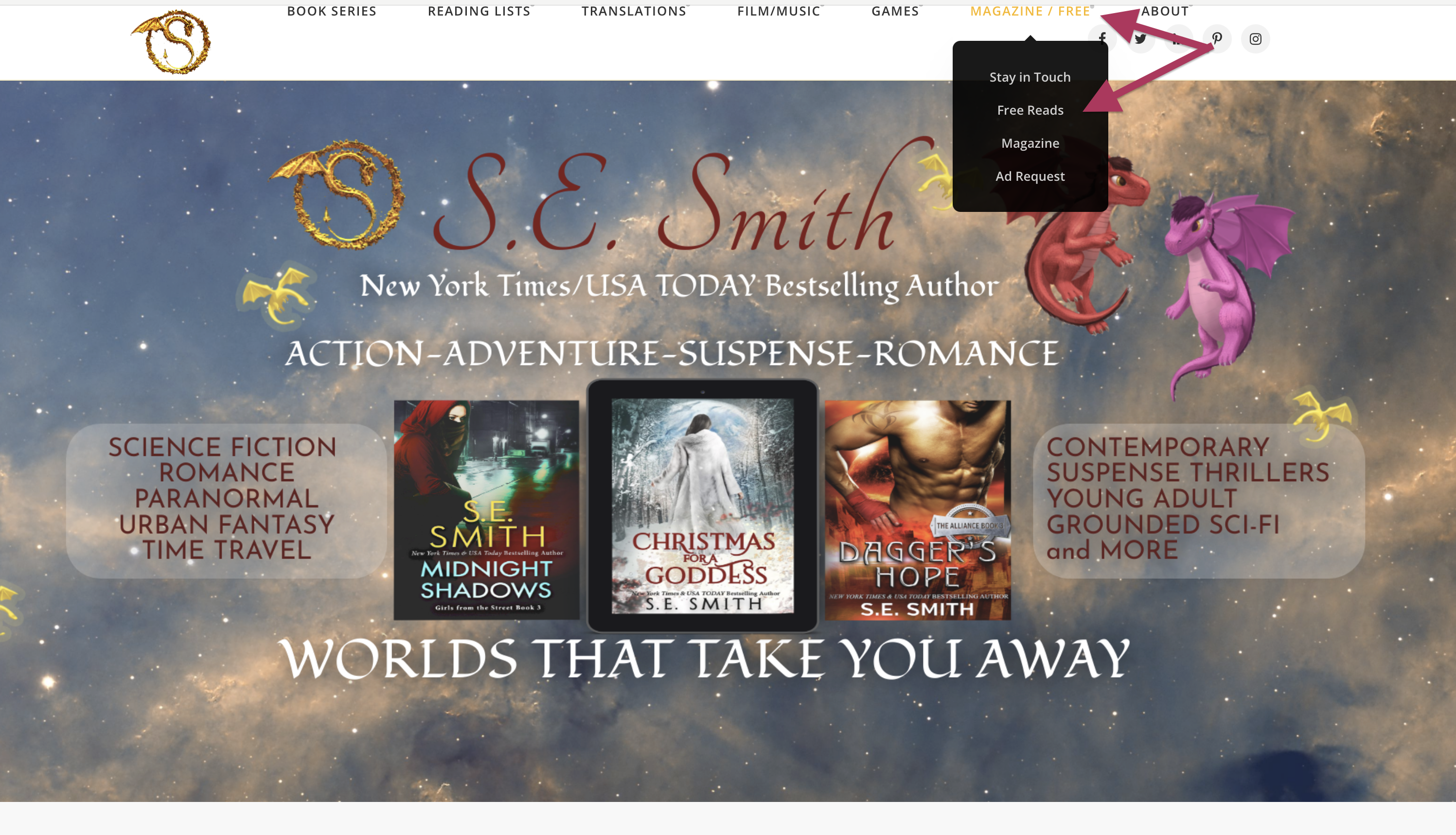How Bonus Content Can Up Your Book Marketing Strategy

Bonus content is an author's gift to readers who opt-in to their email list or take a specific action, typically in exchange for their email address.
The goal of a book bonus is to provide additional value to readers beyond the content of the book itself by encouraging them to engage with the author and their work directly.
Why Consider Book Bonus Content?
Book bonuses make readers feel valued. If you ask readers to join your email list, bonus content can be a great reward.
Once they decide to join your email list, they drive traffic to your website and increase visibility for your book.
Now, it’s on you to turn them into a fanbase. A loyal community of fans will advocate for your work and share it with others. Your sales will grow along with your community.
If you have crowdfunded, a book bonus can be a way to give back to your supporters. You could provide these supporters exclusive content or early access to new releases.
Here are some other reasons to do the work.
1. Convert your followers into subscribers
As mentioned before, creating bonus content can help you grow your email list. When readers sign up for your newsletter, they agree to receive your marketing emails. This allows you to promote your upcoming book and stay at the top of your readers' minds between book releases.
Keep in mind that if you offer bonus content in return for an email subscription, you should not use that same content anywhere else for another purpose. This way, subscribers incentivized by it do not feel cheated if they find it online under other circumstances.
2. Enhance the reader experience
Bonus content can increase the value of your book by providing an additional way for readers to engage with your content. There are several ways to offer meaningful freebies.
Here’s how.
How to Provide Bonus Content Successfully
When it comes to creating bonuses for your book, it's essential to provide value to your readers. The goal is to give them a sense of accomplishment and make them feel like they've received extra value in exchange for their email address.
To achieve this, consider what the next logical step is for your readers after they've finished reading your book.
What do they need to solve next?
This could be a framework for implementing the concepts you've presented in your book. Or it could be a development in the resolution of your novel.
1. When crafting your bonuses
You can include a mix of formats, such as audio training, videos, e-books, and printable worksheets. The key is to make the user experience engaging and easy to follow.
Book bonuses can take many forms, such as:
a. General bonus content ideas
- Exclusive content: Additional chapters, case studies, or expert interviews that expand on the book's themes or topics.
- Digital products: E-books, audio recordings, or video courses that provide more in-depth information or practical applications of the book's concepts.
- Templates or worksheets: Printable or downloadable resources that help readers apply the book's principles to their own lives or businesses.
- Coaching or consulting: One-on-one or group coaching sessions or consulting services that help readers implement the book's strategies.
- Access to a community: A private Facebook group, online forum, or membership site where readers can connect with each other and the author.
- Free trials or demos: Access to a product or service that aligns with the book's themes, allowing readers to try it out before committing to a purchase.
- Exclusive offers: Discounts, promotions, or limited-time offers that provide additional value to readers who opt-in to the author's email list.
b. Specials for fiction authors
Consider adding the following bonus content ideas:
- Bonus chapters or deleted scenes from the current book or the next book in the series.
- Character art or illustrations to bring the characters to life.
- A guide to a location in the book, such as a real or fictional place.
- Character interviews or Q&A sessions to provide more insight into the characters.
- Recipes for foods or drinks mentioned in the book.
- A playlist of songs that match the characters and vibe in the book.
- Book club discussion prompts to encourage readers to explore the book with a group.
When crafting your bonuses specifically for book clubs or writing communities, you need to encourage readers to engage with each other, not just your work.
Speak to a book club organizer or start a book club yourself to get an accurate picture of the type of bonuses that spark conversations.
c. Specials for nonfiction authors
Consider adding the following bonus content ideas:
- A bonus article on a topic raised in the book providing further insight or tips and strategies for the reader.
- Access to an exclusive live or pre-recorded webinar with some nuggets of information not provided in the book or to conduct a Q&A session with readers.
- Inclusion in an exclusive communication channel, such as a secret Facebook Group or Discord server.
- Writing prompts or workbook pages related to your topic that help the reader engage more deeply with your messaging.
- Exclusive, early access to sign up for or participate in an event you're hosting in person or virtually.
💡 Note that while there may be some overlap between the two categories, the key difference lies in the type of content and the purpose of the bonus.
Fiction authors tend to provide additional storytelling or world-building elements to enhance the reader's experience, while nonfiction authors may focus on providing practical applications and resources to help readers implement the book's concepts.
2. When positioning your bonuses
As an author, you want to make sure that your book bonuses are not only valuable to your readers but also effective in converting potential readers into email subscribers.
🔥 Here's a tip: make sure to include a link to the free bonus content on the back cover of your book and your website. This will encourage readers to opt-in to your email list before purchasing your book.
Consider including an extra page describing the bonus content at the start of your book to make it visible to potential readers when they preview the e-book version at online retailers.
For readers who do purchase your book, include a QR code, URL, and description of the benefits at the end of each chapter to make it easy for them to access the bonus content.
3. When promoting your bonuses
Consider highlighting them in your marketing efforts, such as on your author website or social media channels. You can also include a QR code or URL in your book to make it easy for readers to access the bonuses.

After a reader opts to download the bonuses, you can trigger an automated email workflow to keep them engaged. This could include emails encouraging them to read your book or asking about their favorite concepts. You can also share case studies or testimonials to provide social proof and inspiration.
Ultimately, the goal is to provide value to your readers and position yourself as an authority in your field. By doing so, you'll be more likely to engage with readers beyond the pages of your book and build trust with them.
Incentivize Your Readers
Book bonus content is a powerful tool to incentivize your readers and set yourself apart from other authors. Use your creativity to create content that is meaningful to your readership. While many authors use bonus content to connect with readers, focus on what makes your writing unique and valuable to them.
⚡ Keep in mind to:
- make it exclusive and relevant
- keep it engaging
- use it to build your community
- view it as a gift, not a transaction
- cherish the connection
See what other types of book marketing you can do:
It’s free to publish your 1st ebook on PublishDrive. Or try out a paid plan and get your money back if you’re not satisfied.